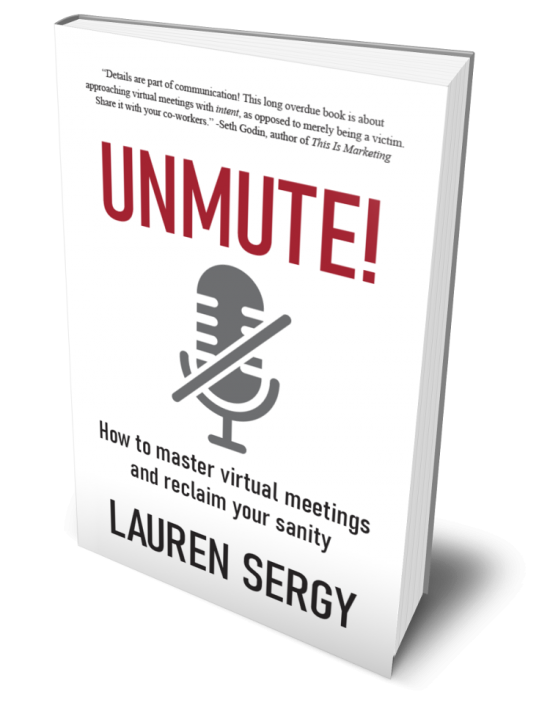Have you found yourself tacking “right?” on to the ends of your sentences, even when it makes no sense?
I know, right?
This common filler word drives a lot of people crazy, including Mike, who has noticed he’s been doing it more and more often. So Mike reached out to me for help, and he isn’t the only one who has brought this particular filler word up. Why do we tack “right” on to the ends of our sentences? And how can we put “right” (along with other filler words) back in their rightful place? Watch on to find out!
Please remember to hit that “like” button on the video, and share it with others! If the embedded video below is being fussy, click here to watch directly on YouTube.
Rather read than watch? Scroll down for the transcript.
TRANSCRIPT
Dealing with filler words is complicated, right?
Hello everyone and welcome back to Communication Q&A – your one-stop-shop for those speaking, presentation, and communication questions that plague our work-a-day lives. Today we have a great question from Mike, and the email is such a delight that I won’t truncate it:
Hi Lauren,
Lately I’m seeing a HUGE increase in people saying “right?” and the end of their sentences. I catch myself doing it, too. I was doing a presentation yesterday and I told the audience “I wanted to gather information about our supply chain, so I’ve put this diagram together, right?”
ARGH! Right? Of course it’s right. You’re showing them in friggin’ diagram!
Did I stop there? NOPE! I went on to say it three more times in the meeting.
I was just on a meeting and the speaker did it about 5 times in the hour. I was listening to a CNN anchor, and she did it about 15 times an hour.
So, this is killing me, right? Help!
Mike
Ahhh, Mike – I know exactly what you’re talking about! “Right” is a very common filler word at the moment (you’ll see trends in language like this come and go).
“Right” is an interesting one, because for a little word that sounds as though it belongs in the script from “Clueless”, it does some heavy lifting. It’s very, very similar to how we use upspeak (I’ve got a video on that – click on the link above or in the description to check it out).
I find people most often use it as a sort of transitionary word or place holder – a way to end a sentence while indicating that there’s more to come. It’s a way of checking in that we’re all on the same page and speaking about the same thing (I suspect that’s what was going on with your diagram comment, right?). It can be used to soften a declarative statement. And we’ll also use it to amplify that we’re in agreement – for example, when we say “I know, right?”
It does serve a communication purpose, and for the most part dropping a little “right?” every now and then isn’t a problem.
But that doesn’t mean you want to be using it constantly. Just as with upspeak, uhs and ums, and other fillers, it’s ongoing, frequent use of that verbal crutch that can make you seem less confident or authoritative.
If you find yourself using “right?” too often and you want to fix it, the strategy is similar to the fix for other filler words.
Focus on speaking in declarative statements, visualize the period at the end of your sentence and drive your energy towards that full stop. Hit it, then pause. Getting used to pausing at the end of your sentences and being comfortable with brief silences is an important speaking skill that helps reduce all manner of filler words.
I’ve found that the most effective practice with these kinds of habits is out-loud speech practise. Be mindful of when you’re most likely to tack on a little “right?” and then practice those segments of your presentations, right down to passing around the handouts or referring to your diagram. Have a strong mental image of course audience and act as though you are speaking to them. If you really visualize them, then the “rights” are likely to sneak out and you can go back, say that sentence again with the focus on the full stop and the pause. Wash, rinse, repeat.
One more hint, Mike, for those times when “right” or any other filler infiltrates your speech: speak more slowly. Consciously slowing down your speech helps you bring your heart rate down and clears your head. It also makes it easier to pre-emptively catch those filler words before they escape your mouth, and helps work in more thoughtful pauses – all of which will help put “right” back in it’s rightful place.
I hope that helps Mike – now I want you and everyone else who battles filler words to take a few minutes to practice!
I’d love to hear from you – what filler words do you tend to use? We all have them, so be brave and share your’s in the comments down below.
Thanks for joining me on this episode of Communication Q&A, and I look forward to seeing you next time!







Can we add any variation on “going/moving forward” to the list of useless and annoying filler words?
I am so annoyed by “intelligent” guests on radio shows/interviews adding “right?” to the end of a declarative sentence. It comes across as an affect. As though it makes them sound more intelligent or something. I am so annoyed by it that I have to turn the station or completely turn off the radio.
I’d venture that many people who do this are trying to control the flow of the conversation, by forcing your agreement whether given or not.